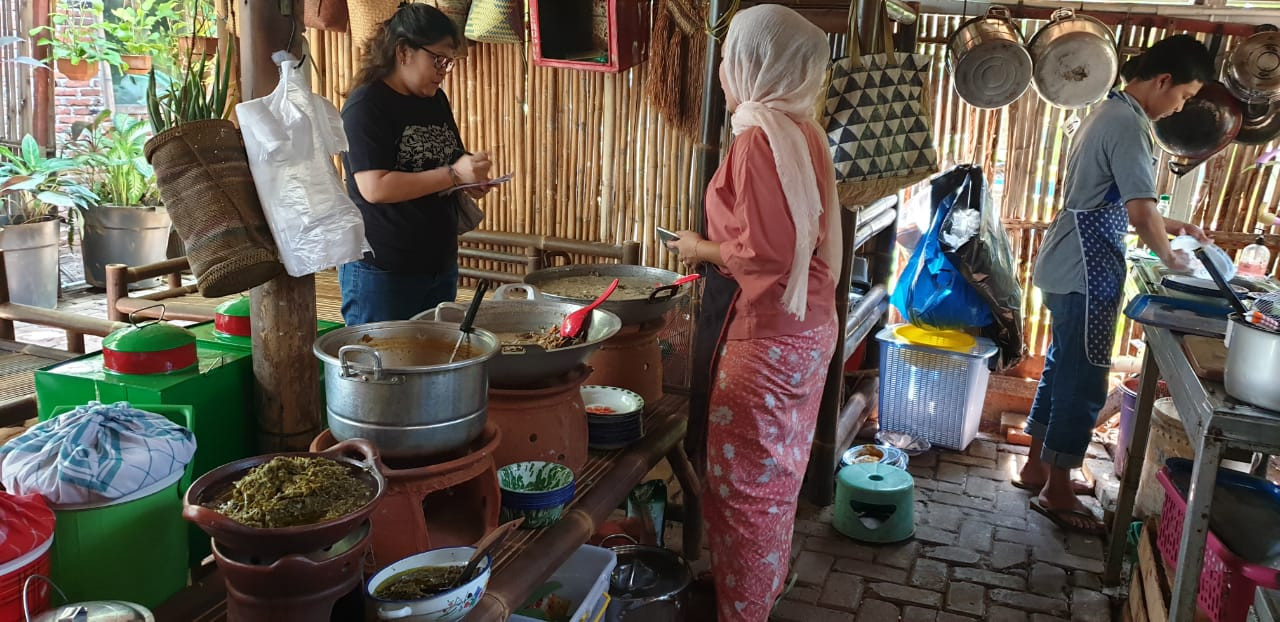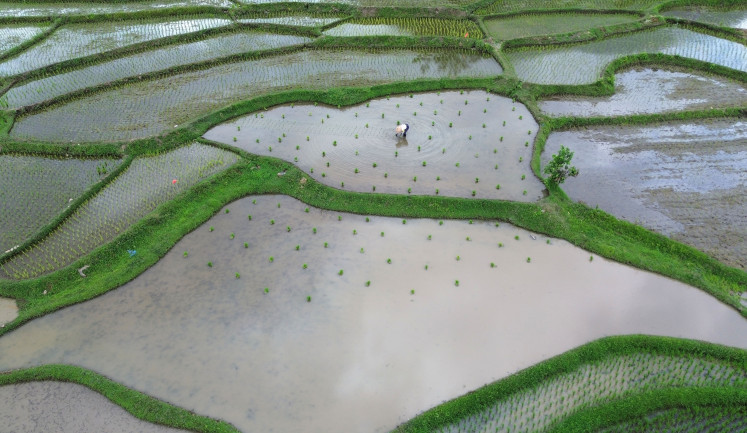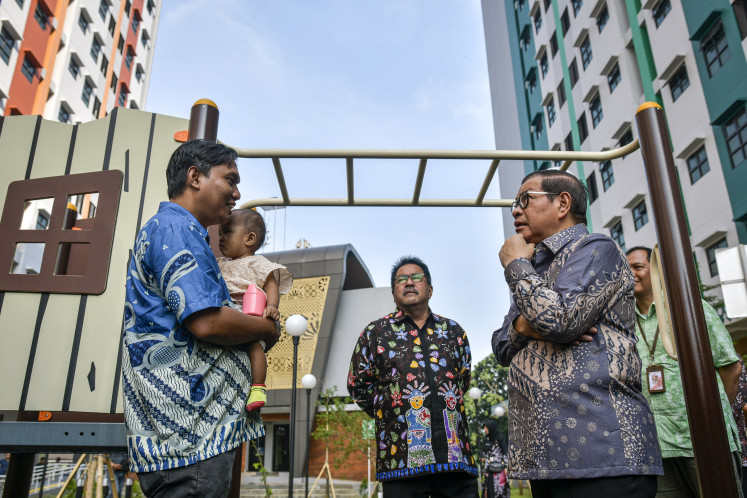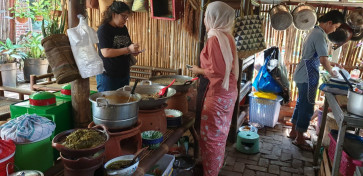Popular Reads
Top Results
Can't find what you're looking for?
View all search resultsPopular Reads
Top Results
Can't find what you're looking for?
View all search resultsInsight: Biodiversity, culture key to food sovereignty
The challenge is how to convince ministers that infrastructure is not only for humans but also for animals and their ecosystems. How to convince President Joko “Jokowi” Widodo that the construction of the Sumatra toll road should not obstruct the routes of the Sumatran elephant and rhino migration or their habitats?
Change text size
Gift Premium Articles
to Anyone
 Nanin (pink shirt) serves her customer at the kicthen of Warung Tuman, restaurant she founded with her husband, Eko Sulistyanto. Warung Tuman offers rare traditional cuisine from West Sumatra and eating experience under trees and in traditional kitchen in Serpong, South Tangerang. (JP/R. Berto Wedhatama)
Nanin (pink shirt) serves her customer at the kicthen of Warung Tuman, restaurant she founded with her husband, Eko Sulistyanto. Warung Tuman offers rare traditional cuisine from West Sumatra and eating experience under trees and in traditional kitchen in Serpong, South Tangerang. (JP/R. Berto Wedhatama)
A
s an economist, I have been taught to calculate everything based on the most effective cost; everything in life should be low on cost, and diversity is valued at a high cost.
In 1965, Indonesia experienced an economic and political crisis resulting in high inflation and soaring food prices. Thus, the economists sought to control inflation by controlling rice prices.
As a result of inflation money lost its value, so a policy was made for civil servants to receive payment partly in rice rations throughout Indonesia, except for eastern Indonesia, such as Papua and Maluku, where they ate sago. They were given sago in place of rice.
Leaders in eastern Indonesia protested the perceived discrimination. Therefore, a policy of national rice acquisition was born. Policies were pushed to increase rice production and distribution, development and selection of seeds and fertilizers, all for the sake of rice.
Rice became akin to God and led Indonesia to rice self-sufficiency in 1986, for which the United Nation’s Food and Agricultural Organization gave Indonesia a standing ovation.
However, experts criticized the rice policy. Other crops that were sources of food were disappearing amid the abundant paddy fields. However, for the economists, food development by specializing in rice was considered correct. At that time I didn’t know the meaning of biodiversity or the environment.
In 1972, I attended the 1972 UN Conference on the Human Environment in Stockholm. Everyone was saying the environment needed to be protected. I couldn’t stop thinking about the fate of food development, which needed land, if deforestation stopped.

















